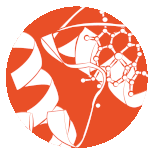Posted at 28 Aug 2014 16:17h
in
Client showcase
by Deb
As per its byline, the
Council of Canadian Academies offers “science advice in the public interest.” The council operates independently and not-for-profit, offering expert and multidisciplinary panel assessments—and a 16-member scientific advisory committee—to “inform public policy development in Canada.” The council’s work, by its own description, encompasses a broad definition of “science” and thus incorporates the natural, social, and health sciences, as well as engineering and the humanities.

Talk Science to Me has had the pleasure of working on multiple projects for the Council of Academies for quite some time now. A bit over a year ago, I myself was privileged to meet some of the folks at their offices in Ottawa. I have since edited several remarkable reports epitomizing the council's overarching goal to "identify emerging issues, gaps in knowledge, Canadian strengths, and international trends and practices."






 Talk Science to Me has had the pleasure of working on multiple projects for the Council of Academies for quite some time now. A bit over a year ago, I myself was privileged to meet some of the folks at their offices in Ottawa. I have since edited several remarkable reports epitomizing the council's overarching goal to "identify emerging issues, gaps in knowledge, Canadian strengths, and international trends and practices."
Talk Science to Me has had the pleasure of working on multiple projects for the Council of Academies for quite some time now. A bit over a year ago, I myself was privileged to meet some of the folks at their offices in Ottawa. I have since edited several remarkable reports epitomizing the council's overarching goal to "identify emerging issues, gaps in knowledge, Canadian strengths, and international trends and practices."